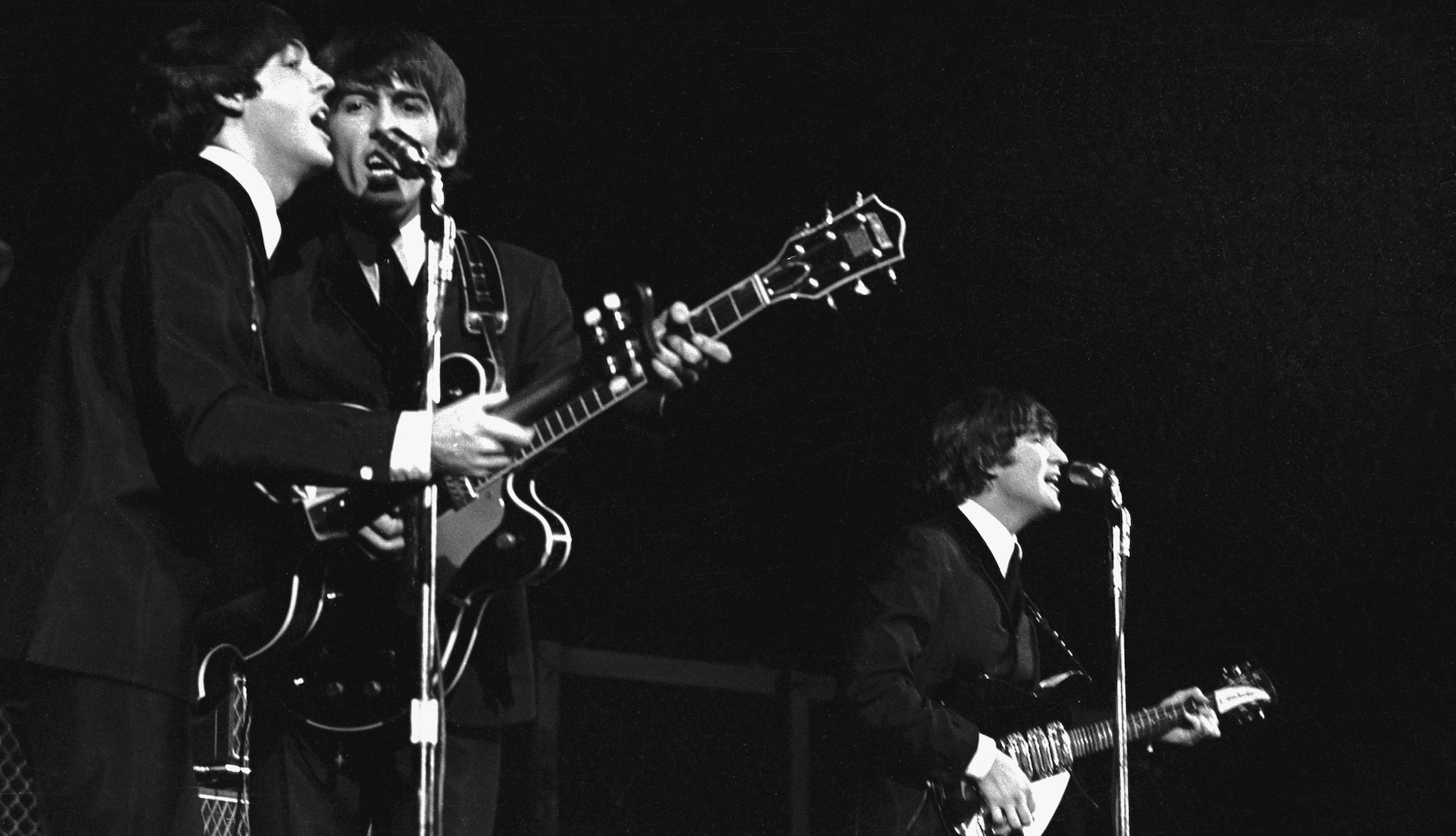
Even if you know hardly anything about the frenzied years of Beatlemania, you probably have at least a vague image in your head of tens of thousands of screaming fans – overwhelming the sound of the Fab Four's live performances.
Technology, in every facet of life, has obviously advanced light years in the six decades since, and the world of onstage guitar amplification is no exception.
There was no such thing as an arena or stadium touring circuit when the Beatles took over America in the mid-'60s, and the band's onstage guitar amp rig was laughably inadequate in the face of the sheer volume of the hysteria that greeted them wherever they played.
In a 1997 interview with Guitar World, George Harrison reflected wryly on the band's live situation, remarking, “We used 30-watt [Vox] amps until we got those really big 100-watt amps at Shea Stadium. And nothing was even mic'd up through the P.A. – they just had to listen to our amps and the two vocal mics. Sometimes we'd just play rubbish.
“At Shea, John was playing that little Vox organ with his elbow and we were laughing hysterically instead of singing the backup vocals. I couldn't hear a thing.”
In the same interview, Ringo Starr echoed Harrison's sentiment, joking, “After a while, we figured we could probably go out there and just fart, and still get the same manic response.
“It must have looked like miming because nobody could hear anything, including us. That doesn't help you as a musician. I couldn't do any fills or we'd lose track of the song. I used to lean over and try to read Paul's lips to keep track of where we were at.”
Though they changed things up in the studio later in their career, the Fab Four have long been associated with Vox amps. John Lennon, for one, began his relationship with the company with his purchase of a Vox AC15 Twin in 1962 (that particular amp, incidentally, was reportedly rediscovered this year.)
The AC15 was likely just fine for the notoriously cramped confines of Liverpool's appropriately-named Cavern Club, where the nascent Fab Four frequently plied their trade at the time, but Vox would swap out Lennon's AC15 for the more powerful AC30 as the band began landing their first hits in early 1963.
I remember many times just sitting outside concert halls waiting for the police to escort us in and thinking, ‘Jesus Christ, I really don't want to go through this’
Paul McCartney
Vox would gamely race to keep up with the Beatles' rapidly evolving needs in the following years, giving them first the AC50 and subsequently the aforementioned AC100 (nicknamed the Super Beatle, and also used by Jimmy Page on Led Zeppelin’s Whole Lotta Love). But the technology of the time still wasn't nearly enough to meet their unprecedented needs.
The inability of the band to get their music across – and even hear themselves and each other – through the sea of screams was the most significant factor in their decision to stop touring in 1966.
“I remember many times just sitting outside concert halls waiting for the police to escort us in and thinking, ‘Jesus Christ, I really don't want to go through this,’” Paul McCartney told Guitar World in 1997.
“‘We've done enough, let's take the money and run. Let's go down to [English seaside resort] Brighton, or something.’ If we could have gotten away with it, we would have.”







